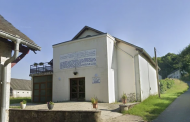Nahla Abdel Moneim
The murder of a French teacher has sparked a lot of international condemnation surrounding the attack and its motives and consequences, as it succeeded a series of recent terrorist attacks in the country, raising questions about the reasons and motives that brought Paris back to the top of the list of terrorist targets in Europe.
In addition, the attack has affected the intellectual trends currently raised in France about terms launched by its politicians linking violence to Islam, which is considered wrong by Muslims, especially by Grand Imam of Al-Azhar Sheikh Ahmed al-Tayeb. Also, an immigrant of Chechen origin having been responsible for carrying out the attack may complicate the paths for migrating to Europe, where societies have been ravaged by violence under the weight of economic, humanitarian and political destitution.
Heinous decapitation
An 18-year-old man of Chechen origin carried out the violent attack against a French teacher near Paris on October 16, cutting off the latter’s head for showing caricatures of the Holy Prophet Muhammad (may God bless him and grant him peace) to his students at the school, which angered parents. News of the incident spread throughout the region, so the young man of Chechen origin decided to kill the teacher in a terrorist operation.
The attack also comes just shortly after a stabbing attack in Paris on September 25, when an extremist stabbed two people near the old headquarters of the Charlie Hebdo magazine after al-Qaeda threatened to target the newspaper’s employees again for re-publishing the cartoons of the Prophet Muhammad (pbuh) that were first published in 2015, after which terrorists carried out an armed attack against the magazine, killing 12 people.
The Paris stabbing is similar to the recent beheading in terms of the exploited motives, despite Muslim religious figures condemning the incident. Extremist groups continue to exploit acts of hate and abuse in order to justify the killings, despite the denunciation of these facts by Muslim scholars.
Al-Azhar statement
Al-Azhar released an official statement on its Facebook page condemning the terrorist attack, stressing that murders cannot be justified under any reason.
Al-Azhar called for respecting all religious sanctities and keeping away from hate speech because it that provokes violence between different groups. The Islamic institution called for the need to implement international legislation criminalizing the act of insulting religions and religious symbols.
In the same context, Sheikh Ahmed al-Tayeb stressed on October 18 that Islam does not call for violence. Stigmatizing the religion as terrorist constitutes ignorance of the teachings of the true religion, he noted, adding that linking religion with extremism is a clear call to incite hatred and sectarianism.
According to the responses of Al-Azhar and its Grand Imam, which are the most influential Muslim references in the Islamic world, there is a categorical rejection and denunciation of terrorist operations carried out by some lone wolves who undermine the reputation of religion. Therefore, extremism remains linked to causes far from religion, according to Al-Azhar scholars.
Timing and ideology
Recent facts raise questions about what the motives are that linked the current timing of the escalating intellectual discourse among French politicians who described terrorism as “Islamic” in disregarding the well-known term “Islamism”, which specifically uses religion to justify violent acts for political goals.
It is possible, however, that extremist groups are seeking to shed more light on their presence in the media to compensate for their losses, including ISIS and al-Qaeda. In a previous statement to the Reference, Brigadier General Khaled Okasha, director of the Egyptian Center for Thought and Strategic Studies, said that Paris enjoys great media coverage, which extremist groups want to exploit.
This does not negate the hypothesis of a radical escalation on French soil, especially with the parallels of offensive operations, as well as the recently discovered networks that manage major cryptocurrency funds for terrorist elements in Syria. This is also fueling the Islamist and far-right conflict in the West, taking advantage of incidents of mutual hatred that may hinder peaceful coexistence for refugees.







































admin in: How the Muslim Brotherhood betrayed Saudi Arabia?
Great article with insight ...
https://www.viagrapascherfr.com/achat-sildenafil-pfizer-tarif/ in: Cross-region cooperation between anti-terrorism agencies needed
Hello there, just became aware of your blog through Google, and found ...